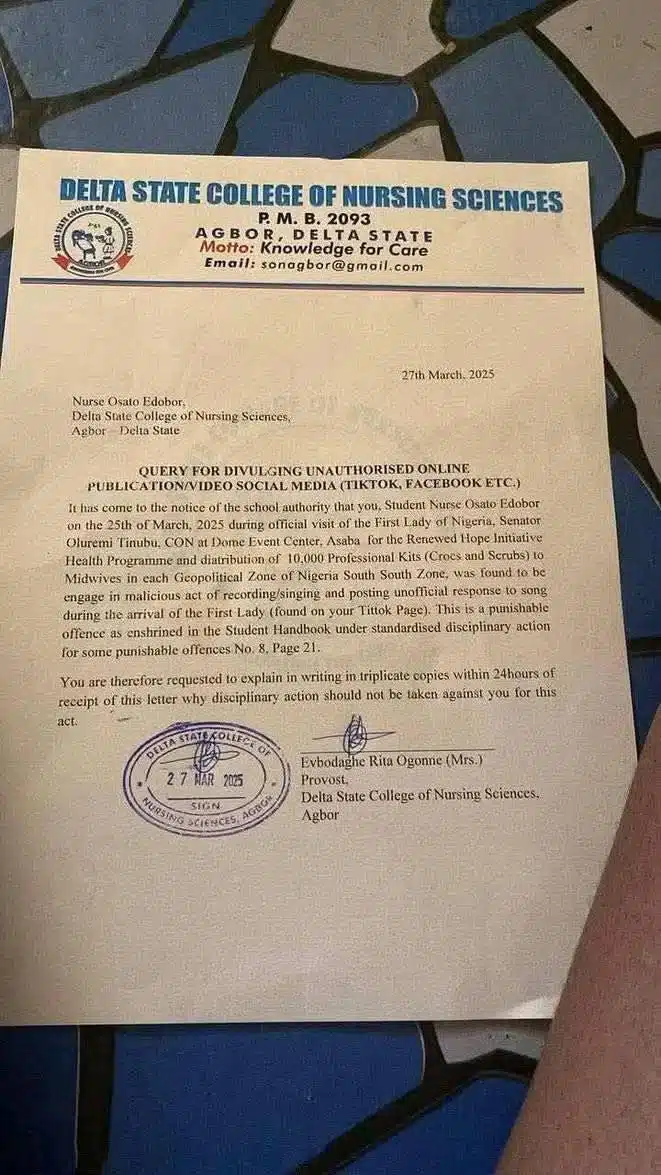By: Daure David
A recent incident at the College of Nursing Sciences in Asaba, Delta State, has sparked outrage among students following a controversial attempt to force public allegiance to the First Lady of Nigeria, Remi Tinubu, during an official school event. Students’ reactions have highlighted their deep-rooted frustrations with what they see as a failing system that prioritizes scripted obedience over genuine care for their needs and aspirations.
The incident unfolded when the provost of the institution attempted to encourage loyalty and respect for the First Lady by asking students to chant their allegiance to Remi Tinubu. What was intended as a show of solidarity, however, quickly turned into an expression of defiance, as numerous students voiced their dissatisfaction and refused to participate in the forced display of praise.
For many students, the provost’s directive felt forced and insincere. One student expressed, “Respect and validation are earned through actions, not through scripted praise,” a sentiment echoed by many others who were present at the event. Rather than addressing their grievances, students argue that the administration’s response was to suppress their voices, punishing them for expressing their concerns.
The incident has brought to the forefront larger systemic issues within Nigeria’s educational and political environments, where dissent is often viewed as unacceptable, especially in spaces meant to promote free thought and critical dialogue. Many students have questioned the rationale behind being compelled to pledge allegiance to a figure they do not recognize or connect with as a “mother figure.”
While the incident was partly seen as a protest against the First Lady, students insist that their dissatisfaction stems from a much broader issue. They contend that leadership should seek validation through policies that address their pressing needs, enhance their educational experiences, and alleviate their daily struggles, rather than relying on staged events that demand robotic responses.
As the controversy continues to unfold, the administration at the College of Nursing Sciences faces growing pressure to address the real issues impacting students. Until these concerns are adequately addressed, the incident may be viewed as symptomatic of a larger systemic failure, one that could have long-lasting consequences for both the students and the institution’s reputation.







